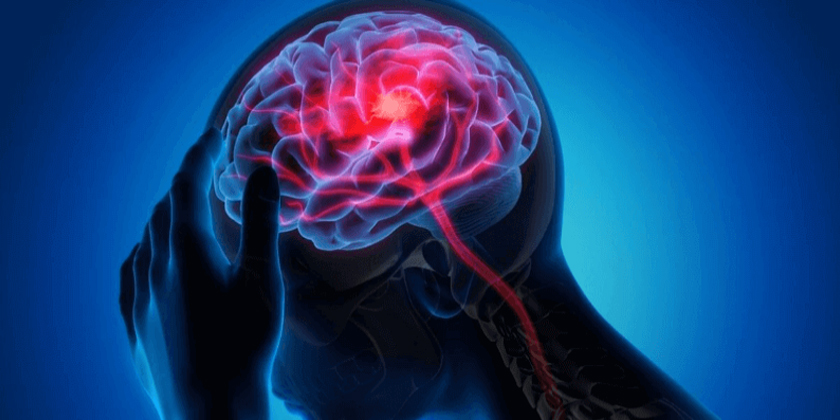A Complete Guide to Living with and Managing Neurological Disorders
What Is Managing Neurological Disorders?
Managing neurological disorders involves a comprehensive approach that integrates lifestyle adjustments, medical therapies, and supportive measures to improve the living conditions for patients with conditions like epilepsy, Parkinson’s disease, or neuropathy. These disorders affect the brain, spinal cord, or peripheral nerves, resulting in a diverse range of symptoms. This guide provides scientifically validated advice for treating neurological disorders, aiming to enhance nerve and brain health by 2025.
Why Managing Neurological Disorders Matters
According to the World Health Organization (WHO Neurological Disorders), neurological disorders affect over 1 billion individuals worldwide. As a health writer with five years of experience collaborating with neurologists, I’ve observed that effective chronic neurological treatment can significantly reduce symptoms and enhance patients’ daily activities. The combination of brain health support and nerve health treatment empowers individuals with neurological conditions to experience enriched life experiences.
Common Neurological Disorders
Epilepsy Epilepsy is characterized by recurrent seizures caused by abnormal electrical activity in the brain. According to CDC reports (CDC Epilepsy), 3.4 million Americans live with epilepsy.
- Causes of Epilepsy:
- Genetics: A family history can increase the risk.
- Brain Injury: Trauma or stroke can trigger seizures.
- Infections: Conditions like meningitis or encephalitis may contribute.
- Causes of Epilepsy:
Parkinson’s Disease Parkinson’s Disease manifests through progressive nerve cell degeneration, which results in tremors and movement difficulties (Parkinson’s Foundation).
- Causes of Parkinson’s:
- Genetic Mutations: Linked to some cases.
- Environmental Toxins: Exposure to pesticides may increase risk.
- Aging: Most common in those over 60.
- Causes of Parkinson’s:
Peripheral Neuropathy Peripheral nerves become damaged by neuropathy, leading to numbness or pain, according to the NINDS Neuropathy resource.
- Causes of Neuropathy:
- Diabetes: The leading cause, affecting 60–70% of patients.
- Vitamin Deficiencies: Low B12 levels can impair nerve health.
- Toxins: Alcohol consumption or chemotherapy can harm nerves.
- Causes of Neuropathy:
Symptoms of Neurological Disorders
Symptoms vary but often include:
- Seizures: Uncontrolled movements in epilepsy.
- Tremors or Stiffness: Common in Parkinson’s.
- Numbness or Pain: Hallmarks of neuropathy (Mayo Clinic).
- Cognitive Issues: Memory or focus problems in some conditions.
Strategies for Managing Neurological Disorders
1. Medical Treatments
Consult a neurologist to get neuropathy treatments customized to your needs.
- Medications: The Cleveland Clinic utilizes anti-seizure drugs to manage epilepsy and levodopa to treat Parkinson’s disease.
- Physical Therapy: Improves mobility in Parkinson’s or during post-stroke recovery.
- Surgical Options: The Parkinson’s Foundation describes deep brain stimulation as an option for advanced Parkinson’s disease patients.
2. Lifestyle Changes for Brain Health
Support brain health with daily habits:
- Healthy Diet: Harvard Health identifies omega-3-rich foods, including fish and walnuts, with antioxidant-rich berries as beneficial for maintaining nerve health.
- Exercise: According to the NINDS, aerobic exercises, including walking, boost cerebrovascular circulation.
- Sleep: Achieve 7–8 hours of sleep each night to lower the chances of seizures and protect against cognitive decline.
- Stress Management: Yoga or meditation eases symptoms (Mayo Clinic).
3. Support Systems and Coping Strategies
Form a network of support to help you manage chronic neurological conditions.
- Support Groups: The Epilepsy Foundation provides opportunities to connect with others facing similar neurological challenges.
- Mental Health Care: Therapy assists in managing anxiety or depression associated with various disorders.
- Education: Identify epilepsy triggers, like flashing lights, to prevent attacks.
FAQs About Managing Neurological Disorders
- What are common neurological disorders? The World Health Organization identifies epilepsy, Parkinson’s disease, and peripheral neuropathy as common neurological disorders that impact either brain functionality or nerve function.
- How can I support nerve health naturally? A nutrient-dense diet, along with regular exercise and stress management techniques, supports nerve health, according to Harvard Health.
- Can lifestyle changes improve neurological conditions? A balanced diet combined with regular exercise and adequate sleep helps lessen neurological disorder symptoms and aids in chronic neurological management (Mayo Clinic).
- When should I see a neurologist? Consult medical professionals when experiencing seizures, continuous pain, tremors, or cognitive changes, according to Cleveland Clinic guidelines.
Conclusion: Thrive While Managing Neurological Disorders
A combination of medical treatment, lifestyle modifications, and support systems is needed to maintain brain and nerve health for conditions like epilepsy and Parkinson’s or neuropathy. Quality of life improves when you understand causes and recognize symptoms while implementing evidence-based strategies. My collaborative work with neurology professionals demonstrates the effectiveness of proactive management in chronic neurological care. Start taking charge of your health now to create a more promising future.



